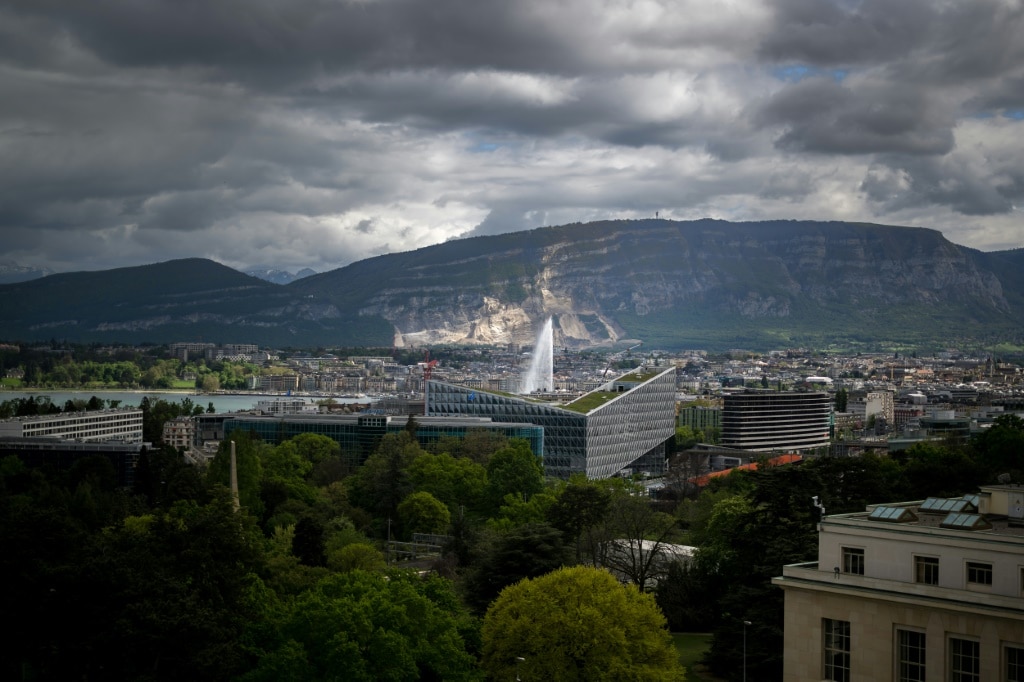Trump hails US-China trade 'reset' after first day of talks
Trump hails US-China trade 'reset' after first day of talks

US President Donald Trump hailed early Sunday a "total reset" in US-China trade relations following the first day of talks between top American and Chinese officials in Geneva aimed at de-escalating tensions sparked by his aggressive tariff rollout.
Trump praised the "very good" discussions and deemed them "a total reset negotiated in a friendly, but constructive, manner."
"We want to see, for the good of both China and the U.S., an opening up of China to American business," he said in a Truth Social post Saturday evening in Washington.
He added: "GREAT PROGRESS MADE!!!"
US Treasury Secretary Scott Bessent and Trade Representative Jamieson Greer met Saturday with Chinese Vice Premier He Lifeng for the first such negotiations between the world's two largest economies since Trump slapped steep new levies on China last month, sparking robust retaliation from Beijing.
The discussions are expected to continue Sunday in Geneva, according to an individual familiar with the talks, who was not authorized to speak publicly.
"The contact in Switzerland is an important step in promoting the resolution of the issue," a commentary published by China's state news agency Xinhua said.
- 'De-escalate' -
The closed-door negotiations took place at the residence of the Swiss ambassador to the United Nations in Geneva, a discrete villa with sky blue shutters near a large park on the left bank of Lake Geneva.
Tariffs imposed by Trump on China since the start of the year currently total 145 percent, with cumulative US duties on some Chinese goods reaching a staggering 245 percent.
In retaliation, China slapped 125 percent levies on US goods, cementing what appears to be a near trade embargo between the two countries.
Trump signalled Friday that he might lower the sky-high tariffs on Chinese imports, taking to social media to suggest that an "80% Tariff on China seems right!".
"The president would like to work it out with China," US Commerce Secretary Howard Lutnick told Fox News on Friday. "He would like to de-escalate the situation."
Trump's press secretary Karoline Leavitt clarified that the United States would not lower tariffs unilaterally, and that China would need to make concessions.
In any case, a move to that level would be a symbolic gesture, since the tariffs would remain prohibitively steep.
- 'No winners' -
Bessent has said the meetings in Switzerland would focus on "de-escalation" and not a "big trade deal".
Beijing has insisted the United States must lift tariffs first and vowed to defend its interests.
"Trade wars and tariff battles yield no winners," said a commentary piece run by Xinhua early Sunday.
China's vice premier went into the discussions buoyed by news on Friday that China's exports rose last month despite the trade war.
The unexpected development was attributed by experts to a re-routing of trade to Southeast Asia to mitigate US tariffs.
Bessent and He were meeting two days after Trump unveiled a trade agreement with Britain, the first deal with any country since he unleashed his blitz of sweeping global tariffs.
The five-page, non-binding deal with London confirmed to nervous investors that the United States is willing to negotiate sector-specific relief from recent duties -- in this case, on British cars, steel and aluminium.
In return, Britain agreed to open up its markets to US beef and other farm products.
But a 10 percent baseline levy on most British goods remained intact and Trump remains "committed" to keeping it in place for other countries, Leavitt told reporters on Friday.
A few hours later, Trump appeared to contradict her, suggesting there could be some flexibility to the baseline -- but only if the right deals could be reached.
"There could be an exception at some point. We'll see," he said.
"If somebody did something exceptional for us, that's always possible."
burs-nl-da/acb



